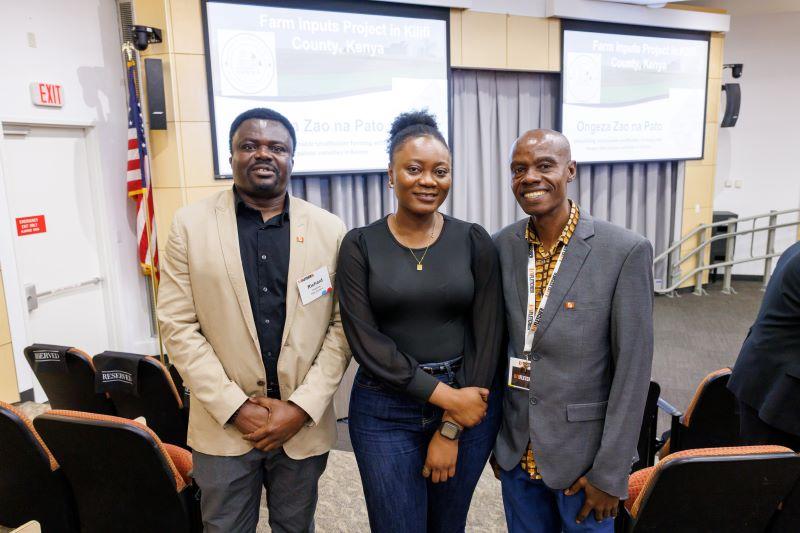-

Hear from Professor Monica Toft
Learn how Professor Monica Toft is shaping the study of global affairs and diplomacy at Fletcher.
Hear from Prof. Toft -

Explore Fletcher academics in action
Fletcher Features offers insights, innovation, stories and expertise by scholars.
Get global insights -
Get application tips right from the source
Learn tips, tricks, and behind-the-scenes insights on applying to Fletcher from our admissions counselors.
Hear from Admissions -

Research that the world is talking about
Stay up to date on the latest research, innovation, and thought leadership from our newsroom.
Stay informed -
Meet Fletcherites and their stories
Get to know our vibrant community through news stories highlighting faculty, students, and alumni.
Meet Fletcherites -

Forge your future after Fletcher
Watch to see how Fletcher prepares global thinkers for success across industries.
See the impact -

Global insights and expertise, on demand.
Need a global affairs expert for a timely and insightful take? Fletcher faculty are available for media inquiries.
Get in Touch
Reimagining Subsistence Farming in Kenya
Student team wins 2024 Fletcher D-Prize for social venture Ongeza Zao na Pato

Fletcher students have harnessed their entrepreneurial spirit to imagine solutions to poverty around the world since 2014.
Open to all Fletcher students, alumni, and Tufts undergraduates, the Fletcher D-Prize is organized around 18 challenges in agriculture, clean water, energy, health access, livelihoods, and public service.
Maggie Adomako FG28, Richard Geegbae F25, and Gabriel Waithaka F24 won this year's D-Prize for their project, "Ongeza Zao na Pato." In response to the quality inputs challenge, they're seeking to stimulate sustainable smallholder farming through catalyzing the adoption of nutritious, climate-smart, and high-value legumes in Kenya's Kilifi County.
Creating an Agricultural Transition
The team selected Kilifi County because 71% of the population lives in poverty, and with agriculture comprising 33% of the country's gross domestic product, they saw a major opportunity for impact.
"When you combine poverty and unsustainable subsistence farming, you already have a big difficulty," said Waithaka, who studied humanitarian aid and interventions in Fletcher's Master of Arts in Humanitarian Assistance program.
He added that the crops subsistence farmers typically grow in the area, such as corn, are not suitable for the environment, leading to longer-term soil depletion and requiring more resources to grow.
"We want to transition farmers to sustainable and profitable agricultural practices, improve soil health, and introduce climate-smart farming," said Adomako.
The team found newly developed and certified seeds from the Kenya Agricultural and Livestock Research Organization. These varieties of bean, green gram, and cowpea seeds are drought-resistant and high in zinc and iron. Additionally, these crops are nitrogen-fixing and replenish the soil as they grow.
Sowing a Social Network
The team also developed a plan to encourage farmers to adopt the seeds.
"In such communities like Kilifi, women and youth groups are very important - especially women because they sell the products," said Adomako. "They are the ones in the market. They have access to the farmers, so they'll be the medium through which we'll spread the word."
The project's model includes a training program, and they will supply the seeds on credit once the farmers have prepared their land.
"We are hoping to establish a model for sustainable agricultural development that can be replicated in other regions," said Adomako. "We are hoping to go to other counties and neighboring countries with similar climates."
"The idea is to help the farmers see the potential in themselves," added Waithaka. "I am a firm believer that the best way to help someone is not to give them handouts. It is to show them how they can get support and lift themselves."
The team won $15,000 from the prize to launch a pilot version of their project this year. The team plans to reach 100 beneficiaries during the pilot and aims to raise an additional $90,000 over the next three years to help them scale the project to 100,000 farmers.
"All of us at the IBGC are very proud of our students and the student teams that have come before them," said Kaushik Chaudhuri, associate director of corporate and external relations.
"They have launched social enterprises, have brought their initial concept idea, and created real world impact."
Read more about Fletcher's human security and humanitarian affairs field of study and Master of International Business degree program.

